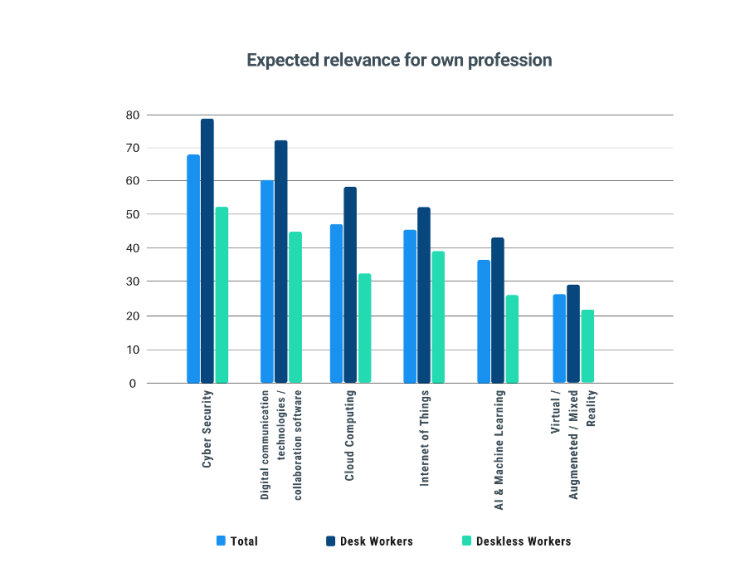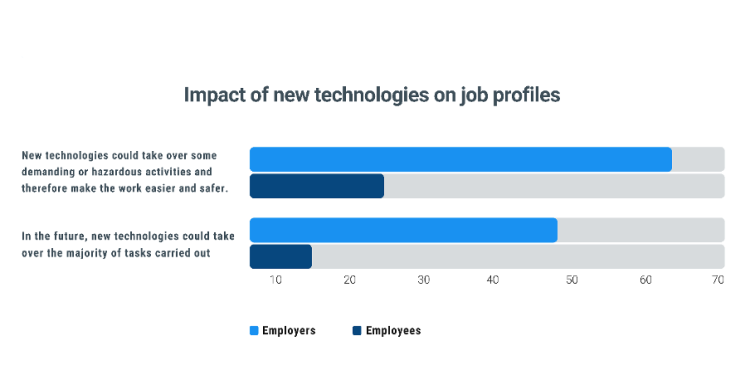Survey results have shown that deskless workers (those working in field service, logistics or production) rate the relevance of digital technologies and trends for their everyday working life, such as IoT, AR, and AI , lower than their office- or desk-based counterparts.
The survey, conducted by YouGov on behalf of the Handelsblatt Research Institute and TeamViewer, took into account the opinions of around 3160 desk workers, 2000 deskless workers and 3650 managers from ten European countries.
It revealed that desk workers rated the relevance of future technologies for their own profession significantly higher than the deskless workers. When desk-based and deskless employees were asked how important technologies and digital mega trends would become into their jobs, employees in office jobs ("desk workers") revealed that technologies and mega trends such as cyber security (79%) and digital communication technologies / collaboration software (71%) would have the most relevance to them. Deskless workers — those working in field service, logistics or production for example — agreed on cyber security (52%) and digital communication technologies / collaboration software (45%), albeit with different weighting put on the importance.
By contrast, when it comes to even more visionary topics such as AI or AR, neither desk workers nor deskless workers seem to have a precise idea of how these technologies could shape their workplace of the future.

Percentage of employees surveyed who consider the respective technology / mega trend to be very/somewhat important
Only 13 percent of respondents from the employees’ side fear that new technologies will take over their work in the future. However, more than a quarter of employees (26%) expect that tedious routine tasks or dangerous activities could be taken away from them by new technologies in the future. Employers are even more optimistic. Around two thirds of employers (65 %) expect that their employees will be relieved of such tasks in the future.

Percentage of surveyed employees and corporate decision-makers who (tend to) agree with the respective statement